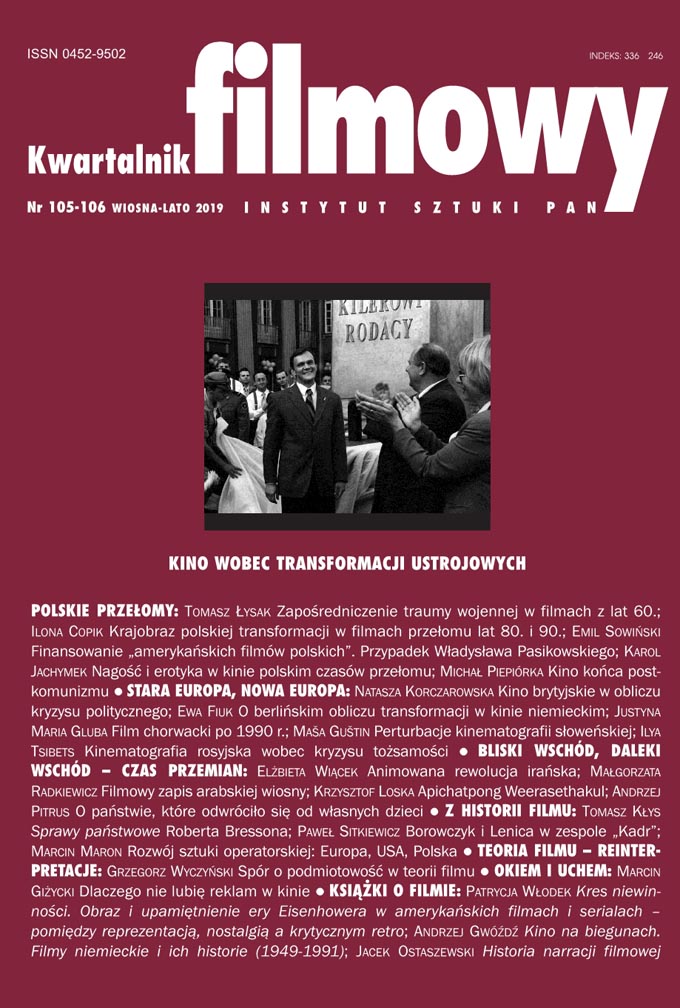Jak być kochaną. Kulturowe zapośredniczenie traumywojennej w filmach z lat 60.
How to Be Loved. Cultural Mediation of War Trauma in Films from the 1960s
Author(s): Tomasz ŁysakSubject(s): Theatre, Dance, Performing Arts, Fine Arts / Performing Arts, Visual Arts, Film / Cinema / Cinematography
Published by: Instytut Sztuki Polskiej Akademii Nauk
Keywords: War;trauma;Polish Cinema;Jan Rybkowski;Wojciech Jerzy Has;Andrzej Munk;Witold Lesiewicz
Summary/Abstract: The theory of trauma appeared in the 1990s as an expression of disappointment with the textual orientation of deconstruction and post-structuralism. Its aim was to turn the theory towards the world. However, in the 1960s, Polish filmmakers were enthusiastic about war traumas as well as their echoes. Applying theoretical tools of trauma theory to three films: „Tonight, the City Will Die” by Jan Rybkowski (1961), „How to Be Loved” by Wojciech Jerzy Has (1962) and the „Passenger” by Andrzej Munk and Witold Lesiewicz (1963) will have three goals: an assessment of the level of understanding of the effects of war traumatic stressors in the 1960s, the distinction of recognized forms of survival/death from psychological wounds, which is not worth commemorating, and also treating cultural representations of trauma as symptoms of wider cultural and social processes.
Journal: Kwartalnik Filmowy
- Issue Year: 2019
- Issue No: 105-106
- Page Range: 6-22
- Page Count: 17
- Language: Polish

